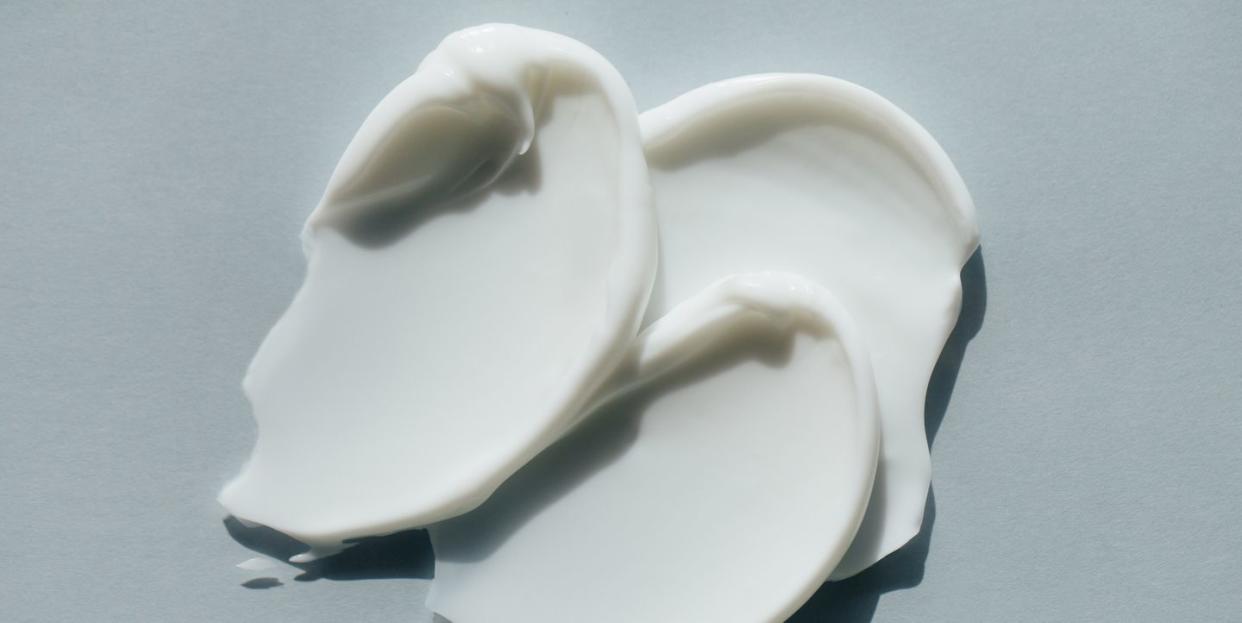Woman Goes Partially Blind Due to Mercury Found in Skin Cream

A woman in Minnesota suffered partial vision loss, as well as other symptoms, after mercury exposure from skin whitening cream.
Mercury, a chemical that blocks melanin production, was not disclosed on the product labels.
Health officials say the loss of vision is irreversible.
In the world of beauty, lots of people aspire to have not only healthy skin but bright, glowing complexions—often using products like brightening serums and eye creams. But, what happens when the ingredients in your beauty products cause harmful side effects? Recently, a woman in Minnesota experienced partial vision loss in addition to a host of other worrying symptoms linked to the use of skin-lightening creams containing mercury, according to a CNN report.
Multiple doctor visits and clinical results lead to a thorough investigation from the Minnesota Pollution Control Agency (MPCA), which found high levels of mercury in the woman’s home, including in the laundry room, towels, bedding, and children’s bedrooms.
Officials noted that the likely culprit of the worrying symptoms was found in beauty creams—specifically, those that were marketed for skin lightening. The product’s labels, which the affected woman says were obtained out of the country, did not disclose high levels of the toxic chemical found in the formulas. Nonetheless, the woman will likely not regain her vision, according to CNN.
Mercury, when added to topical creams and lotions is meant to lighten the skin “as it works to inhibit the formation of melanin,” explains Marisa Garshick, M.D., a leading board-certified dermatologist at Manhattan Dermatology and Cosmetic Surgery in NYC. “That being said, the [Federal Drug Administration] (FDA) has limited the amount of mercury to less than 1 ppm of mercury in skin lightening products, while other countries have banned the use of mercury in skin lightening products.”
Skin lightening practices, especially those that contain mercury, are risky and harmful for a variety of reasons, Dr. Garshick explains. These products can not only irritate the skin, but they can be absorbed by the skin causing issues related to the kidneys and nervous system—including tremors, changes in vision or hearing, numbness and tingling, and more.
“It is especially important that those who are pregnant avoid excess exposure to mercury. The level and extent of exposure may be related to the severity of the effects,” Dr. Garshick noted. “Family members can also become exposed to mercury through close contact and sharing towels or washcloths contaminated with mercury, which can be especially problematic for young children,” such as the type of exposure in the Minnesota case.
“No one intentionally wants to hurt themselves or their family members. But it’s out there and you can’t see it, you can’t smell it,” Erin Batdorff, M.D., a fellow in medical toxicology who examined the woman in her home, told CNN. “There’s no way [for consumers] to know whether [mercury] is in the creams or not because it’s not on the labels.”
The best way to protect yourself from harmful chemicals like mercury in personal care and beauty products is to thoroughly research the items, consult a board-certified dermatologist, and purchase products from authorized vendors—especially when it comes to skin-lightening products, Dr. Garshick says. “Additionally, it is best to avoid products that are imported from other countries if you are not sure of the formulation, if they are not labeled, or if they are being sold illegally in the United States,” Dr. Garshick adds.
Unfortunately, this isn’t the only case of mercury linked to skin-lightening products. “The use of skin-lightening is now a public health crisis in the Somali community and other communities of color,” Amira Adawe, founder and executive director of the Beautywell Project told CNN. “I have met some women that have been using these products 10 to 15 years ...[and] I always get phone calls from individuals who are dealing with the side effects of mercury.”
If you are looking for a paler complexion, there are many other avenues to pursue, Dr. Garshick notes, but they are best used under the guidance of a board-certified dermatologist—specifically, ingredients like hydroquinone.
If you suspect you may not be reacting well to an ingredient or formula in a beauty product, be sure to contact a healthcare professional.
You Might Also Like